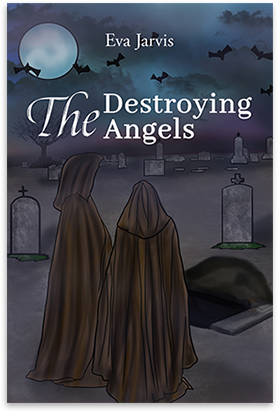
FEAR OF TYPHUS
If you fake it, you make it, the saying was under the
fascist occupying forces, terrified about any contagious diseases. There were
also false alarms about infectious illnesses, which would put the residents of
a town or a village into quarantine, including their overmasters. Their biggest
fear was an outbreak of typhus among the indigenous population that would
spread to the German people. They knew that human corpses fell victims to
transmissible diseases in the households without food, water and soap. The
increased spread of infections among the wretches, half starved to death in the
ghettos, would break through the borders patrolled by the German soldiers,
causing mouth sores, body rushes, chills and even death among the weakest.
Outside the ghettos, life under occupation was not free from insects and
viruses, as lice did not distinguish the hair colour of their ho sts on which
they laid eggs. Lice drew blood from blond and black hair alike, sucking skin
under beards but preferring the bushy tails of large-eyed flying squirrels,
gliding from tree to tree.
The world under the regime in which Dad grew up as a little boy, was one where
the occupants didn’t believe that people were created equal with the same
bones, skins, and hearts. Instead, they forced those they believed to be
subhuman to live in crowded places, like animals. There, the human lice thrived
in brutal conditions, jumping over the fence onto the heads of the rest of the
population, living outside the ghettos. Among the infected were many children
in Dad’s school. Formal education existed during the war which the master race
tailored, allowing teaching only in German. Their doctrine was to educate the
children in the occupied country to a basic level of reading and writing and
simple arithmetic.
There was an underground school running a parallel curricu lum which Dad
attended, and where a few boys showed signs of typhus. I’d like to believe it
was perhaps just an outbreak of fleas affecting the children, including Dad,
who developed oral ulcers that my grandmother treated before she took him to
see a doctor. The first thing to do was to shave the head of the infected, but
walking with a hairless child would cause suspicions in the German patrolled
streets.
So, she told Dad simply to open his mouth, luring him with a jar of honey as a
reward. Beforehand, she dipped her finger in the honey then in a sugar bowl
collecting grains on her sticky finger. Facing her, open mouthed, Dad didn’t
expect what happened next. She pushed her finger deep into his throat, scraping
the ulcers, drawing blood and screams from him. It helped, of course, because
not only did he survive that cruel thing about exfoliating his mouth with
sugar, but due to her iron will, he survived his walk to a doctor’s appointment
during the time when generally the streets were dangerous. Any time of day,
large lorries would come to a halt in big towns, randomly catching passers-by
and packing them inside, like cattle.
A German officer stopped my grandmother and Dad, demanding their identification
papers while looking suspiciously at her son’s shaven head. By that time, his
hair had sprouted somewhat, much like fresh moss in spring grows on the forest
floor. While studying Dad’s features, a scowl appeared on the officer’s face,
narrowing at the little boy’s dark eyes which seemed larger in his skull with
little hair.
“Jude!” The officer screeched as if he burnt his hand over a stove.
“We are not Jewish!” my grandmother argued, pressing their IDs back into the
officer’s hands.
It was a common procedure to measure the metrics of children, such as the
width, length and depth of their features to establish if they were Jewish. He
let my grandmother and her son go because of he r solid identification papers,
oblivious that she and her neighbours collaborated against Germans by helping
to hide Jewish children from the harmful adults.
Dad had never forgotten the cold fingers, touching his face, looking for
Jewishness in the dark-haired boy, making him stand out among generally
blond-haired children.
“I will never forget that officer in the shiny boots,” Dad told me when he
recalled this story. “He wore a Totenkopf symbol that was a skull with
crossbones, and I instantly thought he was the omen of death. But all that time
he touched my forehead, my nose, my ears, he was trembling. He was more fearful
of me than I was of him.
“Why?” I asked with puzzlement.
“Typhus,” he replied. “The Germans feared contagious diseases more than a
bullet in the back—their favourite way of killing civilians.”
Post Views : 813